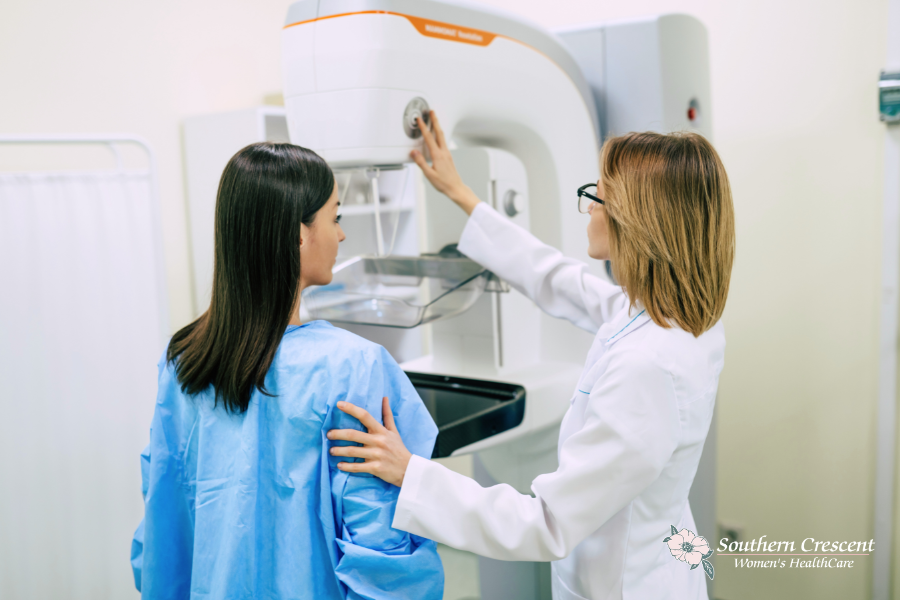What Comes After an Abnormal Pap Smear?
A Pap smear is the part of a women’s health exam conducted to detect cervical cancer. The test involves collecting a cell sample from your cervix, which your doctor then sends to a lab to be checked for abnormalities. Southern Crescent Women’s HealthCare recommends that women between the ages of 21–65 get screened every three years.
Understanding your results
Your Pap smear can alert your doctor at Southern Crescent if any suspicious cells are present, and if you need further testing.
Normal pap smear
If your doctor discovers only normal cells during your Pap smear, your result is said to be negative. In this case, you won’t need any further testing or treatment until your next regularly scheduled exam.
Abnormal pap smear
An abnormal Pap test is said to be a positive result. If your results come back positive, it means your cell sample showed abnormal cells on your cervix — this does not necessarily mean you have cervical cancer, though.
What to do after an abnormal pap smear
The first thing you need to do is to calm down. Even if your results indicate cervical cancer — which they might not — Pap smears exist to aid early detection and treatment.
Your doctor at Southern Crescent will go over your results with you and explain any further testing or treatment you may need.
Most of the time, a positive Pap result means your cells have undergone changes caused by the human papilloma virus (HPV). An extremely common sexually transmitted disease, HPV can be linked to cervical cancer.
Other possible results include:
Atypical squamous cells of undetermined significance (ASCUS)
On a healthy cervix, cells grow thin and flat. ASCUS occurs when the surface cells aren’t normal. Usually, your doctor will conduct another test to screen for HPV, and if HPV isn’t present, there’s probably no risks associated with ASCUS.
Squamous intraepithelial lesion
This result means there are possible cancerous cells on your cervix. They can be low-grade or high-grade, but your doctor will likely order more tests either way to make sure.
Atypical glandular cells
Glandular cells make mucus. They grow in the opening of your cervix and inside your uterus, and atypical glandular cells could be cancerous. Your doctor will order more tests to determine whether they are or not.
Squamous cell cancer or adenocarcinoma cells
This result means the abnormal cells on your cervix are likely cancerous.
Whatever the abnormal results, you will most often undergo a colposcopy and/or a biopsy to confirm whether or not you have cervical cancer.
During a colposcopy, your doctor will look at your cervix with a colposcope, a tool with a light that allows your doctor to see more clearly into your cervix. If your doctor finds abnormal-looking areas, he’ll take a biopsy and send the sample to a lab for further testing.
Should you need removal of abnormal cells, Southern Crescent Women’s HealthCare offers two options: a LEEP and cryotherapy.
During a LEEP, your doctor removes abnormal cells by inserting a thin, looped wire into your vagina and using an electric current to remove cells. Cryotherapy uses a special probe to freeze and remove atypical cells.
Don’t put off this important screening. If you’re due for a Pap smear, call our location closest to you or book an appointment online.
Protecting Your Health: The Power of Timely Mammograms
Protecting Your Health: The Power of Timely Mammograms Breast cancer remains a significant health concern for women, but early detection can make all the difference. Mammograms are a crucial tool in this fight, capable of identifying breast cancer up to three years before it becomes palpable. The American College of…
Could Your Hormones Be Causing Those Migraines?
Could Your Hormones Be Causing Those Migraines? Migraines are headaches that bring not only severe pain but other highly unpleasant symptoms. Did you know that these headaches are especially common in women? In fact, migraines are three times more likely to strike women than men, and girls are more likely…
10 Symptoms of Fibroids
10 Symptoms of Fibroids Uterine fibroids are noncancerous tumors that grow in the uterus. These growths range in size from very small to about the size of a grapefruit, and they affect about 35 million American women annually. For about 7 million affected women, fibroids cause troublesome symptoms that require medical care. Fibroids are…




